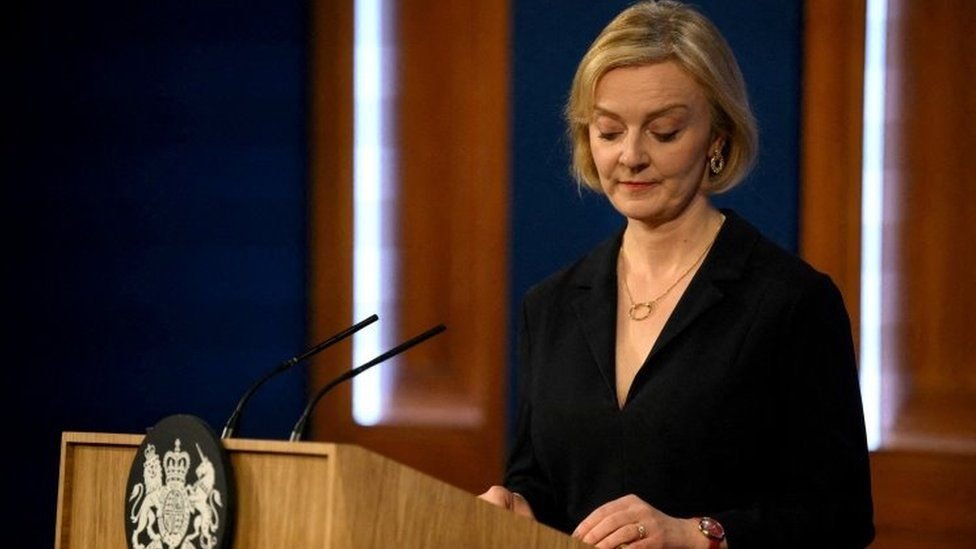UK Economy: What the hell is going on?
(I wrote this on 3 Oct - nearly a month ago. Apart from a few edits it’s substantially the same as written.)
The more one studies macro economics - the way our financial institutes and government work - the more one becomes depressed.
On the surface, credentialed bankers and politicians, project a veneer of competence; that they know what is going on and that by pushing certain levers, dialling up or down certain controls, they can smooth our economic landscape.
My revelation - probably long overdue - over the last few years is that actually we have incompetents in charge at best, bad actors at worst.
Like the contemporary study of history, economics seems to take perverse delight in ignoring the received verities of the past and acting like everything is new. That there is only now. Now will be different from thousands of years of human history.
So, we - the general public, the uneducated masses - knew instinctively that printing money was bad. Printing money is a childish response that clearly provides a short term relief at the expense of long term stability. We used to look at the cautionary tales of the Weimar republic, Zimbabwe, Venezuela, Argentina, and be thankful we lived in Western democracies where such idiocy couldn’t happen here.
It happened here…
To focus in on the UK. The closing of the economy - needlessly, foolishly - in March 2020, prompted the Bank of England to print £450B of money. Money that was given to government via monetarisation of the government debt (gilts). “How much do you want?” asked the Bank of England. And they printed it and used these funds to finance the governments COVID policy. Money was flying around the stagnant economy not backed by productivity or activity.
So we’ve got inflation. This isn’t a surprise. I’ve been signalling this eventuality for the last couple of years and I’m not that bright. I’m not credentialed. I don’t tend to talk in bogus imperatives. The future is always unpredictable but, based on this writer’s experience and judgement, the fact that inflation was coming down the track seemed obvious.
I’m not a Johnny come lately. I’ve written publicly that inflation was on its way due to crazy policy ideas of the Government / central bank nexus both here in the UK and elsewhere. I went public with my fears. Privately, I re-mortagaged six months early in January of this year because I knew rates would soon go up. So I’m personally very smug about that and glad that I did. But not everyone studies macro economics like I do. The general public look to our governments and financial institutions to look after their interests.
They didn’t.
Proximately, the Conservative government did two things and forgot two other things.
What it did: One, it underwrote the energy costs for both consumers and businesses by introducing an average price cap. As energy is very expensive (due to many factors, some, all, due to actual government policy on fossil fuel withdrawal and elective sanctions on Russia), this policy is very expensive (£100B a year? More? Slightly less). The second decision the government made was to lower taxes or cancel recent tax rises.
I’m generally in favour of lower taxes. I spend my money better than any government. Corporation tax is paid for by everyone and the higher it is, the less companies wish to remain or relocate to the UK. So the cancellation of the corporate tax rise from 19p to 25p was a welcome, and sane move. Lowering income tax. Yes, sure, why not. Cancellation of the National Insurance Tax rise was also welcome. Give me more money to spend in what I deem essential (home, heating , kids, and yes, that dreadful word, savings).
The government also abolished the 45% tax rate for those on over £150K a year and did away with the EU inspired cap on bankers’ bonuses. These two I have a hard time defending. The less tax, the better, always but this is a moment of national crisis with energy costs going up and the cost of living getting out of control. There is an argument of trickle down and the Laffer curve (where lowering taxes brings in more revenue) but this was the wrong time to test this out. The government would have been better to increase tax thresholds and do away with the pernicious fiscal drag we’ve been suffering for years.
But onto the two things missing. Firstly, if the government is spending more via energy support but also simultaneously lowering the tax burden, where does the money come from? It was bloody unforgivable and amateur hour for the government not to address expenditure and financing in the mini Budget. Shocking in fact. Interest rates and bond prices were rising already - worldwide. The Bank of England had finally got around to unwinding their bloated QE inspired balance sheet by embarking on Quantitate Tightening (ie, selling government bonds back onto the market). And then the government announced a major leap in expenditure and tax cuts. These commitments would require MORE borrowing at exactly the wrong time.
The second thing the government forgot was not to get the finance world on its side. Finance works off certainty and the British government seemed to relish in surprise. Pulling in the opposite direction to the Bank of England was a foolish move. Not to engage the Office of Budget Responsibility was equally stupid. Also, the markets were surprised and reacted accordingly. Sell the UK! Inflation and the general rise in interest rates are a worldwide phenomenon. The Uk Government’s stupidity meant they became the poster child for a wider movement and got blamed for all the sins of the financial world.
And onto the final piece. It seems that the rise in the yields of gilts uncovered some murky creatures at the bottom of the swap; pension companies. To improve income flow our pension companies were borrowing money in order to buy more gilts. So not just investing their funds but using those funds to borrow money to make further investments. Shades of 2008 all over again. The fall in UK government bonds left the pension funds exposed and on the verge (it’s alleged) of defaulting on their obligations.
So what did the BoE do? It pivoted and moved from a position of selling government bonds to buying them again. Using printed money. Up to £65B more of QE. Yes, in a time of high inflation, the BoE used its firepower to blast itself in the foot. They blinked and chose (maybe rightly, maybe not) to prop up the nefarious pension companies and abandoned their fight against inflation.
To summarise. Too much QE. Stupid COVID policies. Dreadful energy policy. Out of control government spend with no plan to curtail it. Too much government borrowing. Dodgy financial practices of the pension companies unsupervised by a BoE asleep at the wheel. Resumption of QE leading to more inflation down the track. And finally - maybe the worse sin of all; weakness, U-turns, uncertainty at the top.
And who suffers from this shambolic mess? The public who put trust in short termist politicians (of all stripes, Labour have NOTHING to shout about - they would have spent more during COVID in particular and anyway, because that’s what they do). The public trusted our financial institutions who have, again, let us down. The culpability of our betters leads to recession. Lost jobs. Blighted lives.
I used to think money was amoral. I don’t anymore. It can be immoral.


